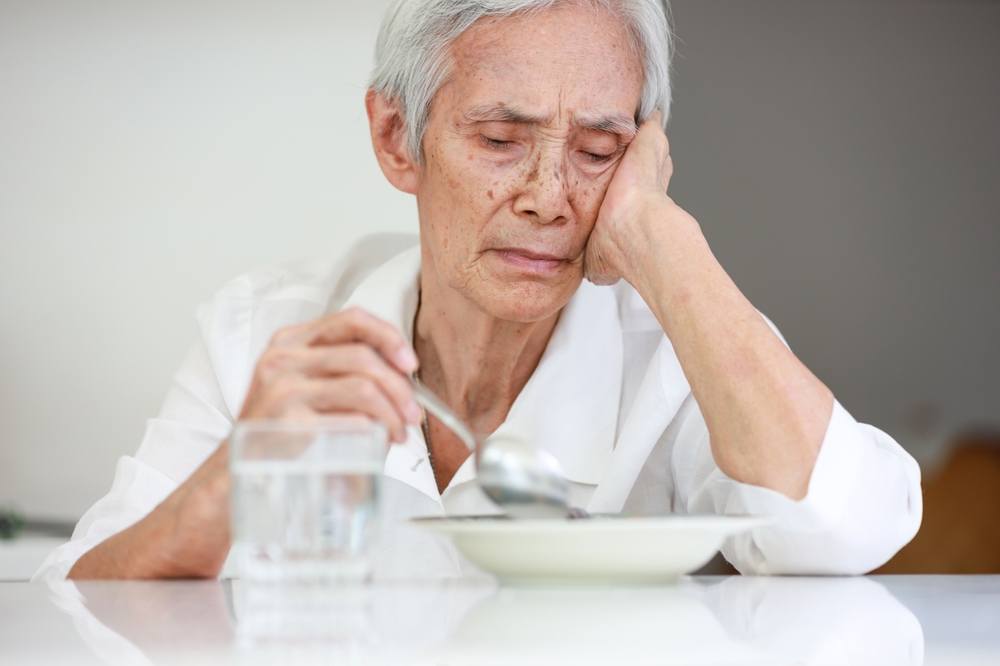Last Updated:
July 21st, 2025
Anorexia | Symptoms, Causes and Treatment Options
Anorexia can feel like it’s all about food: what you eat, when you eat or how much you avoid. But beneath the surface, it’s far more complex. Anorexia takes root in the mind, shapes how someone sees themselves and slowly chips away at both mental and physical health. It can be dangerous but it’s also treatable, especially when help is sought early.
If you or someone close to you is struggling with restrictive eating, a fear of gaining weight or an overwhelming focus on body image, understanding what anorexia really is could be the first step towards something better.

What is anorexia?
Anorexia nervosa is an eating disorder where the person develops an intense fear of gaining weight and a distorted perception of their body. This goes a lot further than ‘wanting to be thin’; it’s often about trying to gain control or escape uncomfortable feelings.
According to the DSM-V, the condition is typically marked by a:
- Restriction of energy intake leading to significantly low body weight
- Intense fear of gaining weight or persistent behaviour interfering with weight gain
- A distorted self-perception of body weight or shape
Anorexia can look slightly different from person to person. The most well-known form is restrictive anorexia, where food is severely limited. Others may binge and then purge or engage in excessive exercise while still eating very little. Some may even show all the psychological traits but not fall below clinical weight thresholds but this doesn’t make their struggle any less serious.
Warning signs to look out for
Anorexia signs often appear subtly, building up over time. Recognising these early, in yourself or your loved one, can make a real difference in getting the help needed.
- Noticeable weight loss, often rapid and unexplained
- Fatigue or weakness from malnutrition
- Dizziness, fainting spells or feeling light-headed
- Irregular or absent menstrual periods in females
- Intense fear of gaining weight, even when underweight
- Seeing themselves as overweight despite clear signs of being underweight
- Fixation on calories, food labels or rigid meal rules
- Denial about the seriousness of weight loss or health risks
- Skipping meals or pretending to have already eaten
- Excessive exercise, even when tired or injured
- Wearing baggy clothes to hide body shape
- Avoiding eating in front of others or making excuses during meals
What causes anorexia?
There isn’t one cause of anorexia; it’s usually a mix of factors. Genetics may play a role, with studies estimating that between 33% and 84% of the risk could be hereditary.
There’s also research that looks into brain function and how certain structures and chemicals in the brain differ in people with eating disorders. These biological differences can affect everything from decision-making to reward response, particularly around food.
On top of that, psychological traits like perfectionism, obsessive thinking or difficulty handling emotions can add to the risk. Environmental pressures such as media influence or growing up in a home where appearance is overly emphasised may also contribute. For some, anorexia develops after a triggering life event, with 23.1% of PTSD sufferers showing signs of anorexia.
The dangers of anorexia
Anorexia has one of the highest mortality rates of any mental health condition. Within the first four years of diagnosis, research shows a 5% death rate. This is often due to complications like cardiac arrest, organ failure or electrolyte imbalances but suicide also remains a major risk, affecting up to 20% of people with anorexia.
The body is forced to adapt to starvation but the longer it goes without proper fuel, the more it starts shutting down. Hormones become disrupted, bones weaken, and the immune system deteriorates. In some cases, the damage can be permanent.
But physical health is just one part. Living with anorexia also takes a mental toll. It can also deeply affect mood and relationships. It leaves a person feeling both numb and on edge, controlled by routines that seem impossible to break but terrifying to let go of.
Debunking anorexia myths
There’s a lot of misunderstanding around anorexia and it’s often this confusion that delays people from seeking help. Here are a few of the most common myths — and the truths behind them.
What anorexia treatment looks like
You may feel the core motivation of anorexia treatment is to convince the person to eat. This couldn’t be further from the truth. Anorexia treatment uncovers a person’s relationship with food and addresses their emotional regulation. This means exploring what the restrictive behaviours might be masking and then building healthier ways to cope.
At Addiction Helper, we can connect you with treatment programmes that include:
- Cognitive behavioural therapy (CBT) to address distorted thinking patterns
- Dialectical behaviour therapy (DBT) to build emotional regulation and distress tolerance
- Group therapy for shared support and accountability
- Holistic therapies such as art, sound or mindfulness for emotional expression and grounding

You’ll work with experienced therapists and nutritionists who understand how deeply anorexia can affect every part of your life. You’ll be supported as you unpick how you got here and how you can move forward.
Taking the next step
Acknowledging that something’s wrong can be the hardest part. Anorexia has a way of convincing you that everything is under control, even when it isn’t. But if you’ve read this far and something feels familiar, it might be time to reach out.
At Addiction Helper, we listen first. We’ll help you understand your options, talk through what treatment might involve and match you with services that fit your needs.
Call us today and let us help you take that first step.
Our compassionate team are ready and available to take your call, and guide you towards lasting the lasting addiction recovery you deserve.
Frequently Asked Questions
(Click here to see works cited)
- Donato K, Ceccarini MR, Dhuli K, Bonetti G, Medori MC, Marceddu G, Precone V, Xhufi S, Bushati M, Bozo D, Beccari T, Bertelli M. Gene variants in eating disorders. Focus on anorexia nervosa, bulimia nervosa and binge-eating disorder. J Prev Med Hyg. 2022 Oct 17;63(2 Suppl 3):E297-E305. doi: 10.15167/2421-4248/jpmh2022.63.2S3.2772. PMID: 36479493; PMCID: PMC9710388.
- Frank GKW, Shott ME, DeGuzman MC. The Neurobiology of Eating Disorders. Child Adolesc Psychiatr Clin N Am. 2019 Oct;28(4):629-640. doi: 10.1016/j.chc.2019.05.007. Epub 2019 Jul 4. PMID: 31443880; PMCID: PMC6709695.
- Spettigue W, Henderson KA. Eating disorders and the role of the media. Can Child Adolesc Psychiatr Rev. 2004 Feb;13(1):16-9. PMID: 19030149; PMCID: PMC2533817.
- Tagay S, Schlottbohm E, Reyes-Rodriguez ML, Repic N, Senf W. Eating disorders, trauma, PTSD and psychosocial resources. Eat Disord. 2014;22(1):33-49. doi: 10.1080/10640266.2014.857517. PMID: 24365526; PMCID: PMC3966425.
- Auger N, Potter BJ, Ukah UV, Low N, Israël M, Steiger H, Healy-Profitós J, Paradis G. Anorexia nervosa and the long-term risk of mortality in women. World Psychiatry. 2021 Oct;20(3):448-449. doi: 10.1002/wps.20904. PMID: 34505367; PMCID: PMC8429328.
- Franko DL, Keel PK. Suicidality in eating disorders: occurrence, correlates and clinical implications. Clin Psychol Rev. 2006 Oct;26(6):769-82. doi: 10.1016/j.cpr.2006.04.001. Epub 2006 Jul 27. PMID: 16875766.

